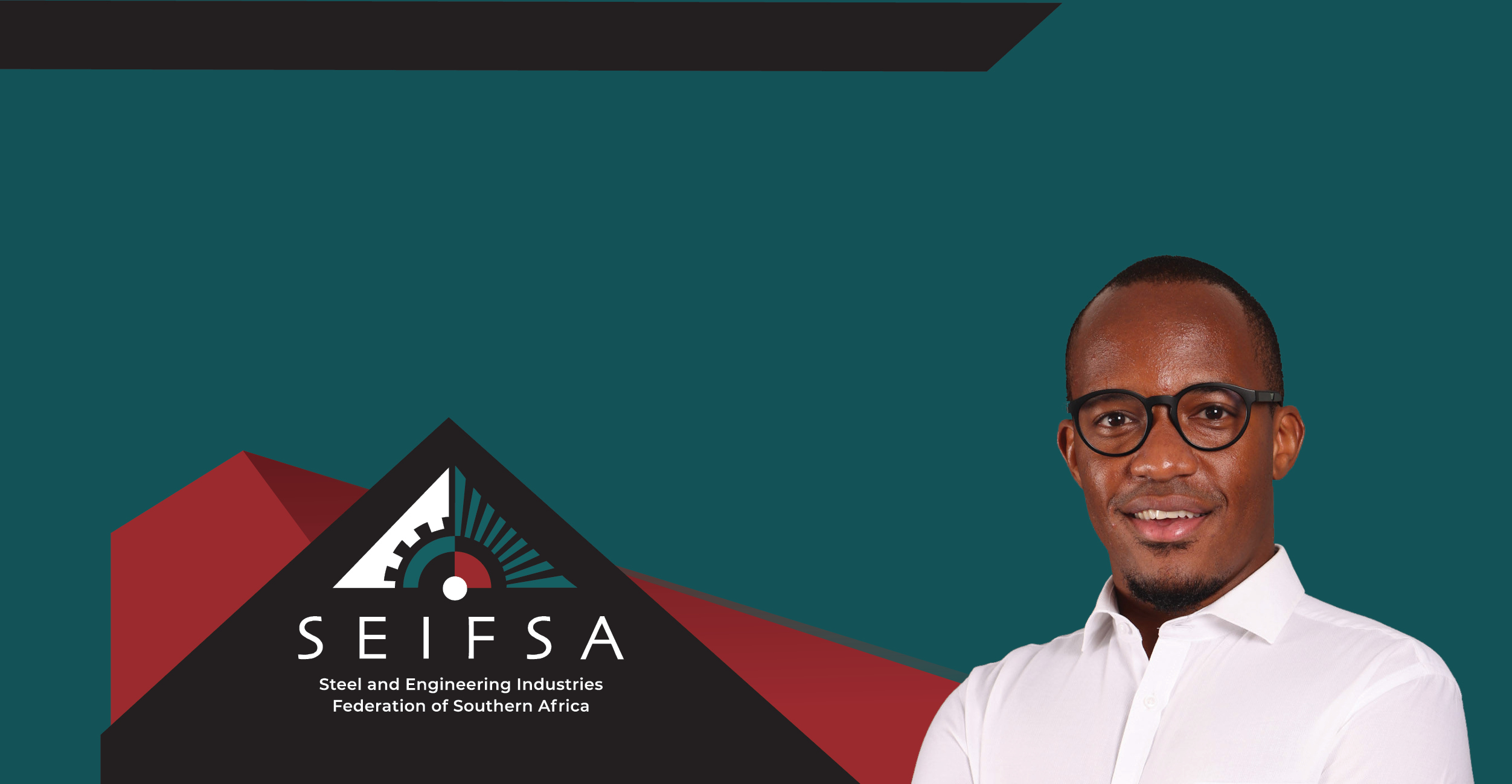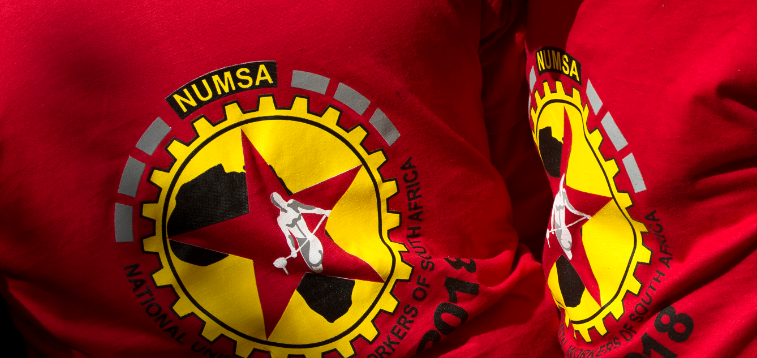Metals and engineering sector production expands but downside risks remain
Johannesburg, 10 March 2022: Production in the metals and engineering sector started the year on a relatively strong note. On a year-on-year basis, production in the total sector expanded by 1.2% in January 2022. On a month-on-month basis between December 2021 and January 2022, production in the sector expanded 4.7%. Total sales increased by 6.2% between these two months from R67.4 billion to R71.6 billion, notes SEIFSA’s Chief Operating Officer, Tafadzwa Chibanguza.
Increases were noted in the electrical machinery products (14%), rubber products (12%) and basic iron and steel (11%). On the contrary, production decreases experienced in in the vehicle parts and accessories (-12%), household appliances (-9%), and structural metal products (-6%).
This is also on the back of the 2.9% year-on-year production growth recorded for the total manufacturing sector in January 2022. Between December 2021 and January 2022, total manufacturing production expanded by 1.9%. The metals and engineering sector, made up of 13 sub-sectors, constitutes 30.9% of the total manufacturing sector. It is encouraging to note that at an aggregate level, production levels in the metals and engineering sector reached pre-covid-19 levels by December 2021.
Chibanguza said “The positive production data recorded in January 2022 is very much in line with the other data points released in the last few days, namely the Purchasing Managers Index and the Business Confidence Index, which all showed notable improvement. This confirms the fact that from the last quarter of 2021 into the first few months of 2022, global economic recovery was starting to take shape and generally supportive of domestic growth in various sectors. However, the geo-political developments involving Russia and Ukraine present downside risks for this recovery”
Risks include heightened uncertainty, volatility and inflationary risks that will manifest through food and the commodities complex including oil prices. This will likely to force the South African Reserve Bank to act much sooner and more aggressively than originally anticipated hurting the prospects of the recovery. Domestically, the recent bouts of load shedding will also dampen the outlook of the productive sectors.
While South Africa cannot do too much about the global geo-political landscape and the risks that will manifest from the developments in that arena, resolving domestic challenges, through implementing urgent reform in the electricity supply industry is entirely in the country’s control. Hence, SEIFSA will continue to press for the necessary reforms to safeguard productive capacity in order to stimulate much-needed growth, Chibanguza concluded.
Economic reform is critical to put the economy on a sustainable growth path
Johannesburg, 8 March 2022 - Gross Domestic Product (GDP) figures released by Statistics South Africa today, show that the South African economy grew by 1.2% in fourth quarter of 2021 and 4.9% for the full year. In 2020, the economy contracted by 6.4% as a result of the economic disruption associated with the covid-19 pandemic. The manufacturing sector grew by 6.62% on the back of a 12.3% contraction in 2020. The metals and engineering sector constitutes 30.9% of the manufacturing sector.
SEIFSA’S Chief Operating Officer Mr Tafadzwa Chibanguza said, “The outcome of the economy’s performance in 2021 should be read in the context of the base effect that will influence the readings. That is, the covid induced lower readings of 2020 will naturally exaggerate the 2021 outcomes, when the two years are compared on a year-on-year basis”.
However, on the metrics of measuring the economy’s performance over the last two years, what is evident is that the economy has not clawed back the ground lost due to the covid-19 pandemic. Chibanguza said, “This is a worrying outcome considering the reasons. Firstly, although supply chain disruption did impact global trade since the onslaught of the pandemic, generally the global economic environment was supportive toward recovery. However, the economy experienced a substantial contraction of 1.7% in quarter three of the year due to the civil unrest in July 2021, which naturally eroded from the gains. The unrests were akin to an economic own goal, highlighting the urgent need to urgently address the security situation in the country. A second reason has been the generally lackluster approach to implementing the economic reform programs that are necessary to turn the economy around”, he said.
Gross fixed capital formation for the year 2021 increased by a disappointing 2.03%. The metals and engineering sectors fortunes are linked to higher levels of economic activity which is driven by greater investment into the economy, particularly fixed investment. The GDP outcomes for two key markets of the mentals and engineering sector output, namely, the mining and construction sectors experienced varied outcomes, of 11.8% and -1.9% respectively.
The economic growth rate for 2022 is projected to be 2.1 percent, and it is expected to average 1.8 percent over the next three years. SEIFSA has previously highlighted that this economic performance is too weak to provide a platform for higher demand for M&E sector products such as steel. Mr Chibanguza concluded that, “An aggressive reform agenda, focused on implementation, in the energy, transport, water, security and greater fixed investment into the economy is therefore urgently required if the South African economy and the metals and engineering sector are to grow”.
SEIFSA Value Proposition
SEIFSA members get value-added service exactly when they need it
The Steel & Engineering Industries Federation of Southern Africa (SEIFSA) is the voice of the metals & engineering (M&E) sector and acts as an intermediary between the industry, government, business and labour.
"SEIFSA represents the interests of its members and the industry. The federation continues to increase value for all those it represents, based on an impeccable track record driven by decades of experience, ensuring an amicable business environment and further enhancing opportunities in the sector," says Theresa Crowley, associations manager at SEIFSA.
Elias Monareng, human resources executive for Mitek South Africa , is clear on how his company has benefited from its SEIFSA affiliated membership - industrial relations and legal issues. "Labour matters are complex and costly if standards and/or protocols are not followed. Being an affiliate member of SEIFSA, most of our labour matters are handled at the collective bargaining level and not at plant level, giving us more room and time to focus on operational issues. If there is a problem at plant level, SEIFSA is just a phone call away for any industrial relations and/or legal advice and in most cases for free. That is what we call value-added service," says Monareng.
SEIFSA has also helped Mitek with job grading for all scheduled positions to align wages to the industry pay grades and rates; the training of employees; and wage negotiations at national level as well as legal advice during strikes.
For Terresa Frankenberg, quality assurance manager at Evapco South Africa, training is what she is most grateful for when it comes to SEIFSA.
"It has been very beneficial, I've got so much out of training. I have done all the training that SEIFSA offers in terms of my job - disciplinary hearings and the Protection of Personal Information (POPI) Act, and so much more", she says.
The other area where Evapco has reaped the rewards of its SEIFSA membership is with labour relations. "When it comes to things like negotiating wages, SEIFSA has really helped. Last year was incredibly stressful for all of us and the SEIFSA guys were just doing their best, throughout, including negotiating wages.
"I could WhatsApp any of my SEIFSA contacts at any time and I would get a response. They are so accessible," she says.
Niren Rohanlal, the senior regional product and solution manager at Grundfos, says that as a multinational the company has found SEIFSA's advice on local regulations invaluable.
"As an international company it is hard to navigate the labour law and other regulations, but SEIFSA acts on behalf of Grundfos. In fact, SEIFSA goes well beyond the call of duty in facilitating and accommodating international companies. As a multinational in South Africa, Grundfos would have been lost without the support of SEIFSA."
Wage negotiation is another area where Grundfos has been happy to be part of the SEIFSA family. "SEIFSA has played a very important role in this. They helped with talks with the bargaining council and also the union wage increases. There is always the offer of support from SEIFSA," he says.
SEIFSA offers its members a wide range of services, and at a time when South Africa's M&E sector is under enormous pressure due to the Covid-19 pandemic, a shrinking domestic market, increasing unemployment and cheap imports, this level of support can make all the difference.
"SEIFSA is not only a national employer federation that represents the M&E sector, we also provide a comprehensive range of services and products to member companies and any other interested companies inside and outside the sector. These services include advice, assistance, consultancy - on issues such as labour legislation, dispute resolution, health and safety and Broad-Based Black Economic Empowerment - publications, training courses, seminars and conferences," says SEIFSA’s Crowley.
SEIFSA welcomes back Tafadzwa (Taffie) Chibanguza as Chief Operating Officer
Taffie returns to SEIFSA in a revised and expanded capacity, whilst still retaining the Chief Economist portfolio. Taffie as SEIFSA's Chief Operations Officer (COO) will be working closely with the Executive Team and Chief Executive Officer, Lucio Trentini. The SEIFSA Team headed by Lucio and Taffie and ably assisted by the Executive Team comprising of Louwresse Specht (Head of Industrial Relations and Legal), Mariaan de Jager (Head of Finance), Nuraan Alli (Head Marketing, Sales and Communication), and Nita Govendasamy (Head Human Capital and Skills development) who together, will be working to roll-out SEIFSA’s revised strategic vision focusing on lobbying, advocacy, and collective bargaining.
PRESS RELEASE: SEIFSA WELCOMES A WELL-BALANCED BUDGET BY MINISTER OF FINANCE
Johannesburg, 23 February 2022 - The Steel and Engineering Industries Federation of Southern Africa (SEIFSA) welcomes the Finance Minister’s budget, which is a well-balanced approach outlining plans on supporting the economic recovery of the country against the backdrop of the Coronavirus pandemic and economic hardships facing both the economy and the M&E sector.
SEIFSA Economist Ms Palesa Molise stated that “The South African economic recovery has succumbed to various challenges such as the COVID-19 pandemic, social unrest, industrial action and the re-introduction of loadshedding which has contributed to a downward revision in economic growth to 4.8 percent in 2021 from 5.1 percent at the time of the Medium-Term Budget Policy Spending (MTBPS).”
It was generally expected that revenue collection would overshoot the budget, however, the important question was how the windfall would be allocated. SEIFSA welcomes the position adopted by treasury that the windfall is not a function of a stronger economy, but rather the consequences of a commodity price boom, and that the country will not fund permanent expenditure from short-term surpluses is welcomed, Ms Molise said.
“In our view the minister has taken a progressive step of using the windfall to improve some of the macroeconomic metrics. Notable is the primary budget surplus which is expected as early as the next fiscal year (2023/24) and the reduction in the consolidated budget deficit from 5.7% of GDP in the 2022/23 to 4.2% of GDP in 2024/25. The fact that the surplus will also contribute to reducing the country’s borrowing requirements is a positive step considering the already high public debt level and associated debt servicing costs of R330 billion a year”, she said
SEIFSA is also encouraged by plans to foster growth by stabilising electricity supply as energy supply is one of the most critical areas of concern for the M&E sector. Addressing this challenge will go a long way in benefiting the sector by ensuring a predictable and stable electricity supply. Ms Molise applauds the Minister for the provisional allocation of R17.5b for infrastructure catalytic projects which will accelerate industrial activities and employment creation. The focus on infrastructure spending is in-line with the commitment to infrastructure spending announced by the President during his State of the Nation Address. This allocation to infrastructure projects will contribute greatly to the broader manufacturing sector’s sub-sectors such as the M&E sector and construction sector. In support of businesses who were severally affected by COVID-19, we welcome the “Bounce-back scheme” which will assist businesses specifically in the ailing Metals and Engineering sector. This coupled with the reduction in corporate tax will boost business confidence and contribute to the competitiveness of companies in the sector, she said
It is however, SEIFSA’s view that not enough attention was given to the structural reforms programs that are necessary to fundamentally lift the country’s economic growth. Ms Molise said, ‘The projected real economic growth rate of 2.1 percent, to average at 1.8 percent over the next three years is far too weak to provide a platform for higher demand for M&E sector products such as steel. A poor growth scenario and the persistent existence of downside risks from erratic electricity supply will regrettably have additional cost implications for producing companies in the M&E cluster”.
The road to economic recovery will be challenging, the Minister has struck the right notes but as always, the devil will be in the detail and on whether pronouncements translate to actions and tangible results, Ms Molise concluded.
SAFTU’s intended protest action 23 February 2022
Management may be aware, from recent media reports, that the South African Federation of Trade Unions (SAFTU), of which NUMSA is a member, is preparing for a National Day of Action in the form of a general strike on Wednesday, 23rd February 2022 in support of workers’ rights to a living wage.
Protest Action and the Labour Relations Act
The Labour Relations Act (LRA) permits registered trade unions or federations such as SAFTU, to undertake protected protest action to promote the social and economic interests of workers provided that they observe the procedural requirements contained in Section 77 (1) (b) of the LRA 66 of 1995, as amended.
This application was duly considered by NEDLAC and the NEDLAC Section 77 Standing Committee has determined the notice to be compliant with the administrative requirements of the LRA.
Consequently, employees participating in any action on 23rd February 2022 (between 06:00 to 18:00) will be protected by the normal rules regarding protected strikes, namely: no work, no pay and no disciplinary action.
The action on the 23rd February seems to be limited to the Western Cape with the rest of the country potentially not being affected.
However, as NUMSA is a national trade union, there may well be stay-away action outside of the Western Cape. Furthermore, with NEDLAC pronouncing that the action is protected, any other trade union or for that matter any other employee may elect to piggyback on the protected action.
Consequently, any employees participating in any action on 23rd February will be protected by the normal rules regarding protected strike action, namely: no-work-no-pay and no disciplinary action.
Management Guidelines on Possible Absenteeism on Wednesday, 23 February 2022.
SEIFSA recommends that management adopt the following course of action in dealing with any stay-away from work on the 23rd February:
Inform all workers that any absences related to the protest action will be treated on the following basis:
- no work, no pay; no disciplinary action;
- a shift for leave pay and leave enhancement pay qualification purposes will be lost in respect of the day’s absence; and
- any overtime worked during the course of the week will be paid at ordinary rates to make up for the lost ordinary working hours from Wednesday, 23rd February 2022.
The Staff of the SEIFSA Industrial Relations Division are available on (011) 298-9400 to provide any further advice and/ or assistance to management on the contents of this management brief.
Employment Equity proposed targets for manufacturing sector
Dear Member Representative
The 2020 EE Act Amendment Bill is in the process of being passed into law, having already been passed by Parliament. Its aim is to speed up the pace of transformation within the private sector.
The Bill stipulates that any employer with more than 50 employees who want to do business with any arm of the State will need a Certificate of Compliance in order to do so. In order to obtain a Compliance Certificate, an employer in any Sector or Sub-Sector will need to comply with its Sector’s or Sub-Sector’s Sector Targets, or advance acceptable ‘reasonable grounds for its failure to do so.
The Bill also provides for compliance with a Sector’s Sector Targets to be used by the Director-General of Labour as a criterion in assessing whether a designated employer has complied with the EE Act or not. As you are aware, a fine of 2% of turnover can be levied in the event of the Labour Court finding that a designated employer has not done so.
SEIFSA, your umbrella body, has been mandated by the SEIFSA Council to formulate a response to the Sector Targets below proposed by the Department of Employment and Labour (‘DoE&L’) for the Manufacturing Sector, under which most of the SEIFSA affiliated member companies reside.
Please reference the Standard Industrial Classification Divisions attached i.e., Division 24; 25; 26; 27; 28; 30; 33 and for companies engaged in the plastics Division 22.
SEIFSA will be working with Adv Jan Munnik, the Managing Director of EES-SIYAKHA, a specialist Employment Equity consultancy, with a 22-year track record, who comes highly recommended and has practical and hands-on experience in assisting individual employers in our sector and employers and employer bodies in other sectors.
| Level | Male | Female | Total Black | ||||||
| Black | A | C | I | Black | A | C | I | ||
| Top Management | 25% | 21.6% | 2.7% | 0.7% | 25% | 21.6% | 2.7% | 0.7% | 50% |
| Senior Management | 30% | 25.9% | 3.2% | 0.9% | 30% | 25.9% | 3.2% | 0.9% | 60% |
| Professionally Qualified/ Middle Management | 38% | 32% | 3.9% | 1.1% | 38% | 32% | 3.9% | 1.1% | 75% |
| Skilled Technical/Junior Management | 44% | 38% | 4.7% | 1.3% | 44% | 38% | 4.7% | 1.3% | 88% |
| Employees with disabilities | 2% | ||||||||
The consensus view amongst SEIFSA affiliated member companies is that the above targets (largely informed by the BBBEE Generic Scorecard) are ambitious, not informed by employer input, and in all likelihood unattainable.
In order to formulate a SEIFSA response to the above proposed targets, reflective of the views of the broader membership, as represented by the affiliated Employer Associations, who in-turn represent their respective membership we need your assistance.
Please note that if we do nothing and we don’t work on a response, the above in all likelihood may well become our targets.
Accordingly, what we require from you is that you:
(b) Complete SIC codes (by completing rows 3 and 6 (if applicable) and below them ticking the description that best describes your business) and also return to the email addresses below together with your EEA 2 Forms for the last three (3) years
(c) Send all the documentation by email to Emmanuel@eess.co.za / copying Mdu@eess.co.za, by no later than Friday, 18 February 2021
Should you require further clarification on this project please View webinar on 11 February 2022 of the Special SEIFSA Council meeting.
Ending the national state of disaster will provide renewed impetus for structural economic reform
JOHANNESBURG, 10 FEBRUARY 2022 – President Cyril Ramaphosa emphasized in his SONA address to the nation that economic reforms are critical to unlocking economic growth. He stressed that fundamental change and reform are urgently needed to revive economic growth.
Ramaphosa’s speech focused on four overriding priority areas: continuing the fight against the coronavirus; accelerating economic recovery; implementing economic reforms to create sustainable jobs and drive inclusive growth and addressing corruption and strengthening the states capacity to eradicate this scourge.
SEIFSA welcomes the commitment to finalizing the long-overdue unbundling of Eskom into three separate units: generation, transmission and distribution. We welcome the long-delayed auction of spectrum which will unlock new spectrum for mobile communications. The focus on addressing the crisis of SOE’s in order to ensure that state-owned enterprises are effectively fulfilling their responsibilities and to retain, consolidate or dispose those that are not is again, welcomed and long overdue.
Announcements aimed at reviewing labour market regulations for smaller businesses to enable them to hire more people, while protecting workers rights; eradicating red-tape; easing a number of regulatory inhibiters to growth for SMME’s and fast-tracking payment to those who provide products and services to the state are long overdue.
SEIFSA applauds the President for acknowledging that government does not create jobs. Job creation is a by-product of economic growth, generated by business. SEIFSA is at edam with the President that government’s role is to create conditions that will enable the private sector to grow and hire more people.
SEIFSA welcomes the announcement that infrastructure spend is central to our economic recovery. We are encouraged by the focus on the Steel Master Plan which is ultimately aimed and increasing production, capacity and the creation of jobs in the metals and engineering sector. The focus being on localization, designation, buy-SA without compromising on cost and quality.
We remain concerned that the country’s security structures remain exposed and require urgent strengthening. South Africa simply cannot afford a repeat of what happened in July last year. Our concerns extend to the ongoing acts of theft, vandalism and economic extortion perpetrated by criminals that the state and its security structures must, without delay, stamp out as we work to rebuilding our economic and industrial base.
SEIFSA and the affiliated Associated Membership stands ready to work with all social partners in building, what the President referred to last night, as a Comprehensive Social Compact.
The lifting of the national stage of disaster will assist in this endeavor as we charter the way ahead. Business stands ready to make its contribution in translating promises and policy to action and delivery. We have little time to waste.
Producer price inflation (PPI) for intermediate manufactured goods remains unchanged
Johannesburg, 27 January 2022 - The Steel and Engineering Industries Federation of Southern Africa (SEIFSA) is pleased with the PPI for intermediate manufactured goods data, as reported by Statistics South Africa (Stats SA) today.
The latest data published by Stats SA indicates producer price indices which is a measure of the average change in the prices of goods either as they leave their place of production or as they enter the production process. PPI is used for a variety of purposes, such as: a short-term indicator of inflationary trends and for indexing long-term contracts to take the inflationary risk out of the contract in contract price adjustments.
The Stats SA data shows that on a year-on-year basis, the PPI for intermediate manufactured goods remains at 23.1 percent for December 2021. Economist at SEIFSA, Ms Molise stated that “the main contributors to the annual rate were: chemicals, rubber and plastic products, basic and fabricated metals and sawmilling and wood. While the PPI for final manufactured goods for the broader manufacturing sector also increased to 10.8 percent in December 2021, up from 9.6 percent in November 2021 on a year-on-year basis”.
Prices for intermediate manufactured goods, have increased from a low base in 2021 averaging at 16.2 percent. While the increase in prices for intermediate goods over the 12-month period in 2021 is relatively positive news for the producers of intermediate goods within the M&E sector in terms of increasing profit margins by passing cost increases to customers, however, in depressed market conditions, this may have negative implications in terms of affordability from a customer base perspective, Ms Molise said.
The increasing trend in PPI, tends to result in future inflationary pressure in the prices of consumer goods, as seen in the recent annual headline consumer price inflation (CPI) figures, coming at 5.9 percent in December 2021, up from 5.5 percent in November 2021, which is the highest annual increase since March 2017, indicating an increase in the cost of living.
For the period January 2021 to December 2021, PPI for intermediated manufactured goods data has significantly improved, which provided an opportunity for businesses to leverage in trading opportunities. With global producer price inflation rates increasing, as the global economy slowly picks up in 2022, the overall inflationary outlook domestically could pose as a concern at consumer level and at industrial production level as high unemployment rates, weaker exchange rate, rising fuel costs and escalating electricity costs continue to pose significant barriers to growth for the overall M&E sector.
BUSA on announcement by minister Pravin Gordhan on electricity market reforms
We support the comments made by two of our members, BLSA and Minerals Council SA, on
the announcement by Minister Gordhan that ESKOM will 36000 hectares of its land in
Mpumalanga to private sector generators of renewable energy. We also welcome the Minister’s
and ESKOM management’s announcement that they will expedite access to the grid by
independent power producers and other private sector players with the capability and capacity
to produce renewable energy.
It is exactly this type of partnership between the public and private sector that BUSA has been
appealing for in the course of the last 3 to 4 years. This initiative demonstrates the optimal
utilization of appropriate public and private sector infrastructure and capacity to address the
critical problem of energy supply. This is great for the economy, but also addresses the
frustrations of ordinary people who experience load shedding on a regular basis.
BUSA has consistently called for necessary structural reforms in the economy to attract
investment, put us on a sustainable inclusive growth path and address the socio-economic
challenges we have. President Ramaphosa’s announcement a few months ago that the ceiling
for embedded energy would be raised to 110MW was warmly welcomed by BUSA. The
announcement on Wednesday 15th December 2021 by Minister Gordhan and ESKOM begins to
give effect to the opening up of the energy sector to private sector players.
We also welcome this fresh and progressive approach from ESKOM. Andre de Ruyter has
consistently maintained ESKOM must facilitate the entry of private sector players ion the energy
market and enabling access to the grid of cleaner forms of energy. This announcement
demonstrates that ESKOM has finally adopted an approach that moves away from a
monopolization of the energy market. This is an essential step in applying the National
Integrated Energy Plan and puts us on the long hard road to sustainably addressing SA’s
energy crisis. This initiative must also be seen in the context of our country’s commitment to
zero emissions and is a step in that direction.
BUSA urges other SOE’s to follow the example set by Minister Gordhan and ESKOM. We
cannot, as a country, afford to waste resources and not use optimally all the capacity in the
public and private sector, to grow our economy and improve people’s lives. We are convinced
this type of a fresh approach from other critical SOE’s will unlock the full potential of the private
sector and send a clear signal that government is beginning to implement the structural reforms
urgently needed to attract investment and build our economy.










